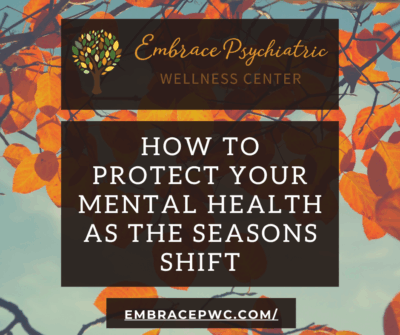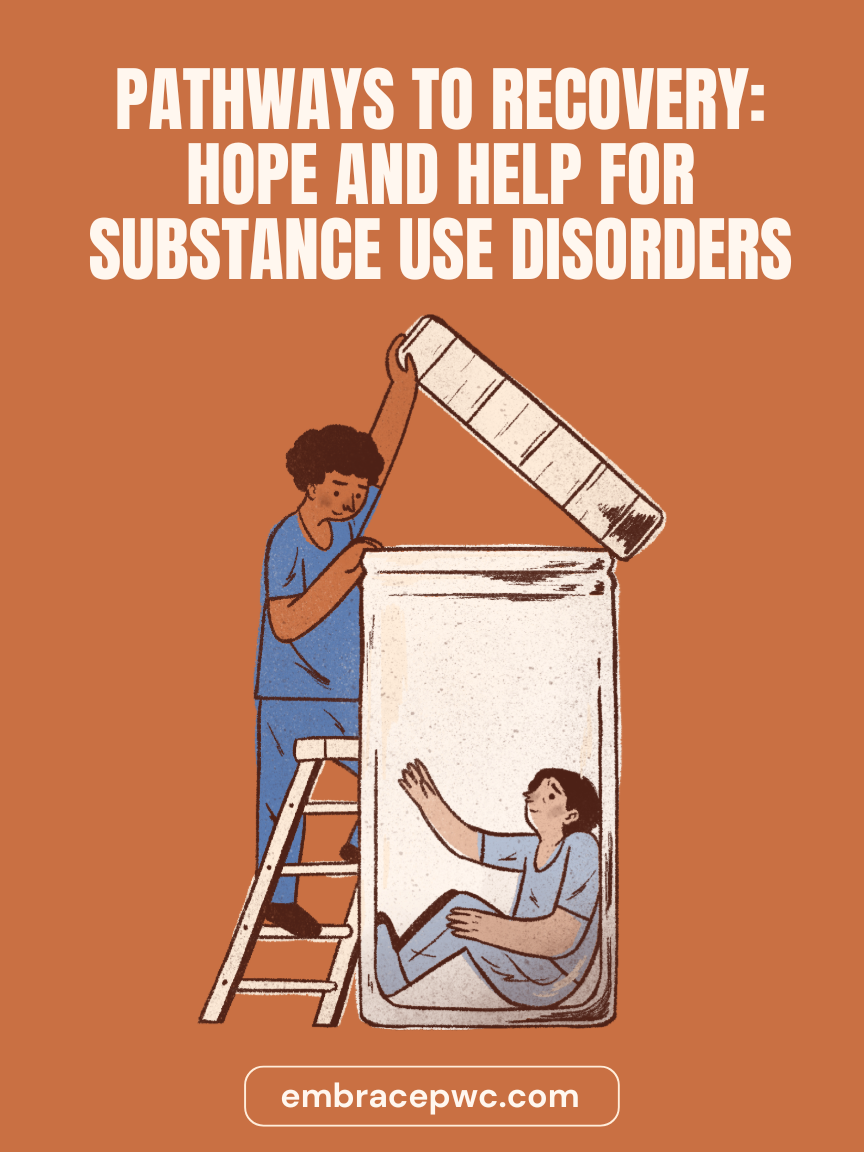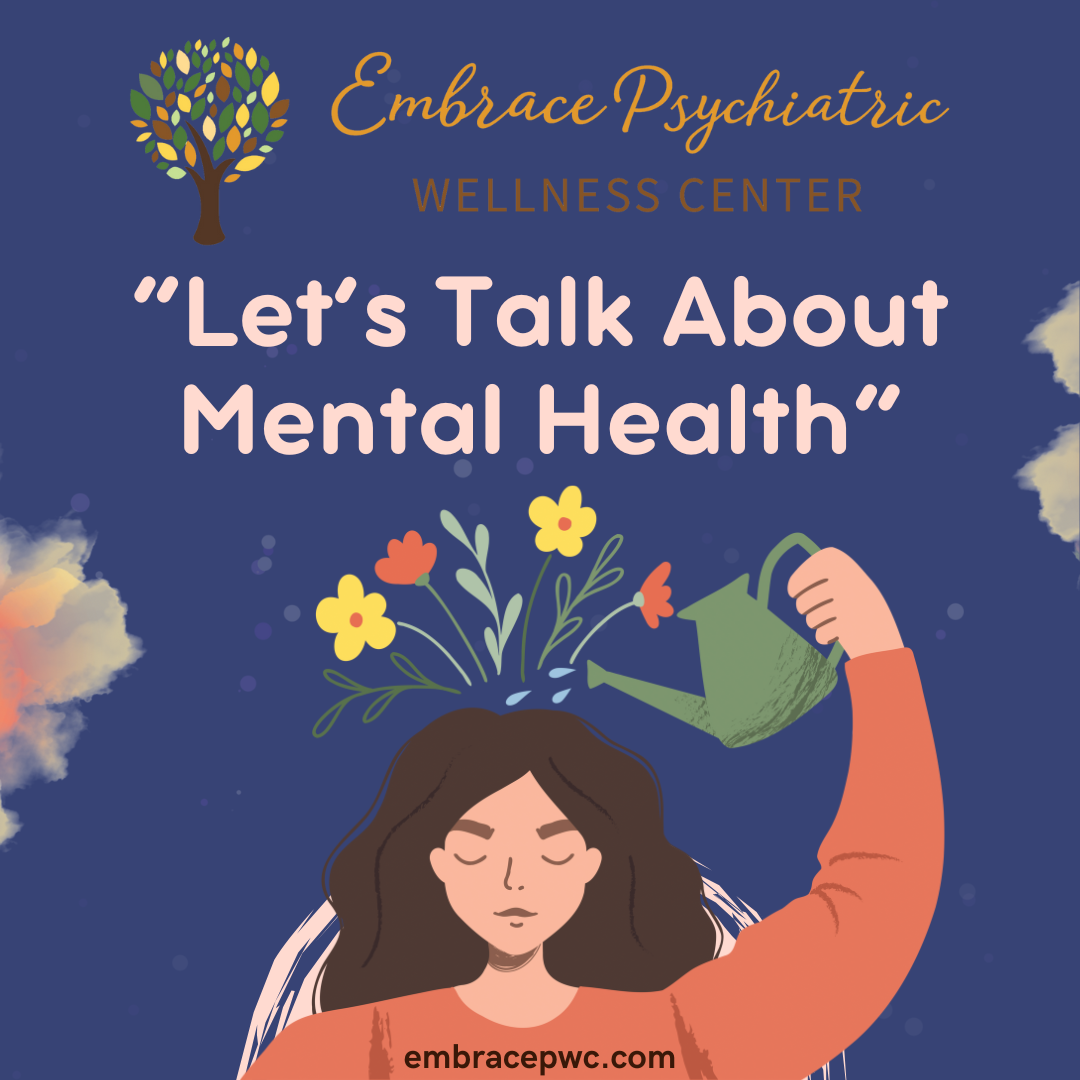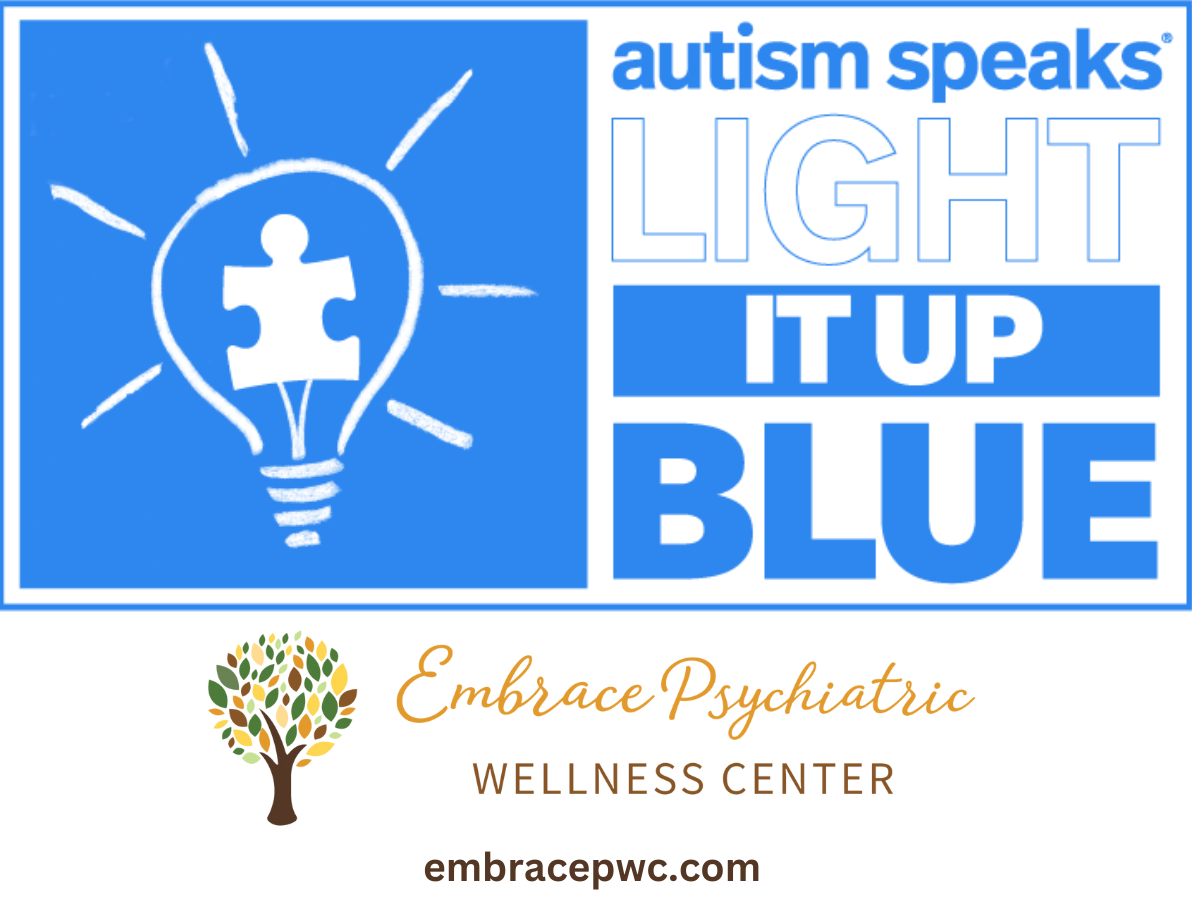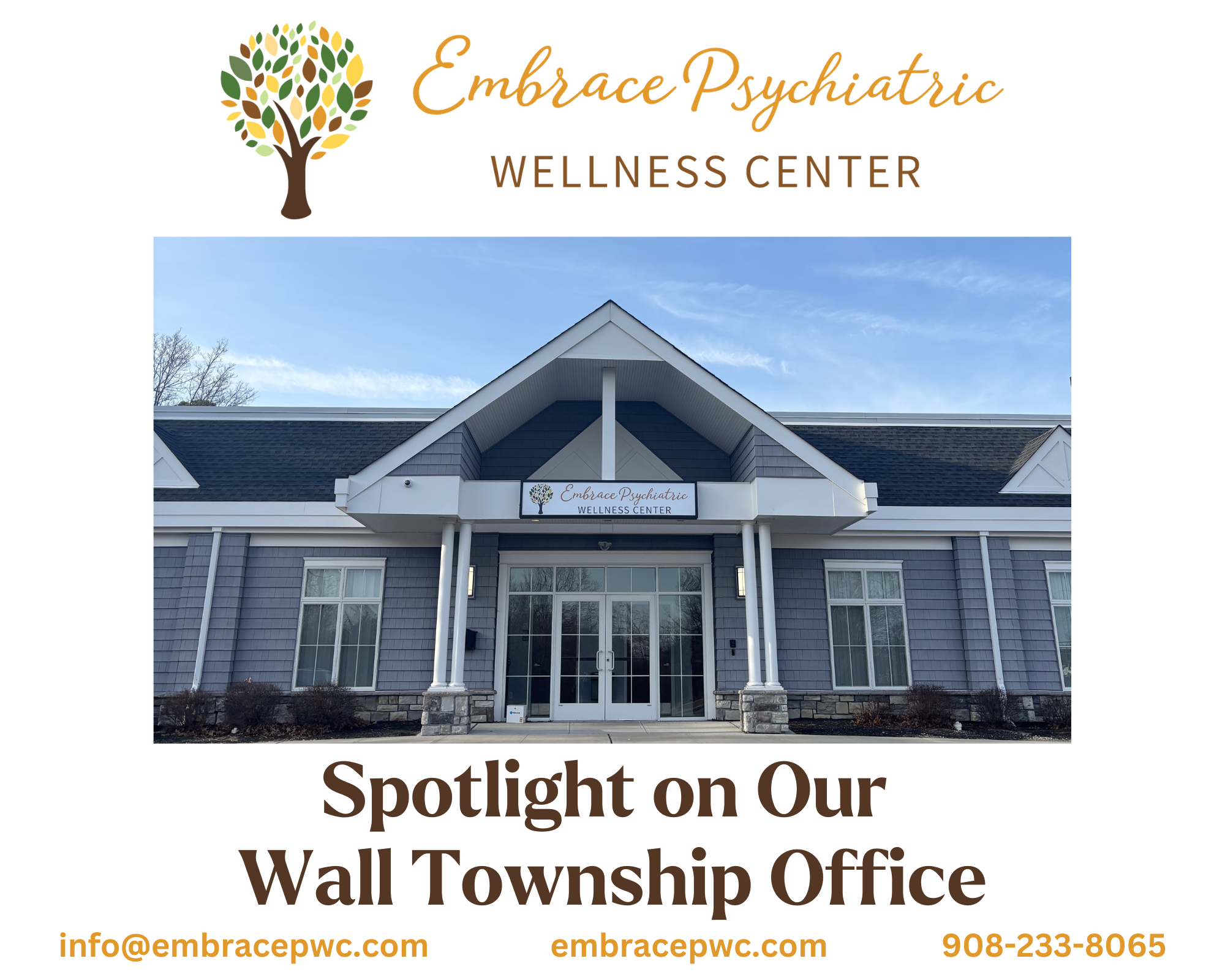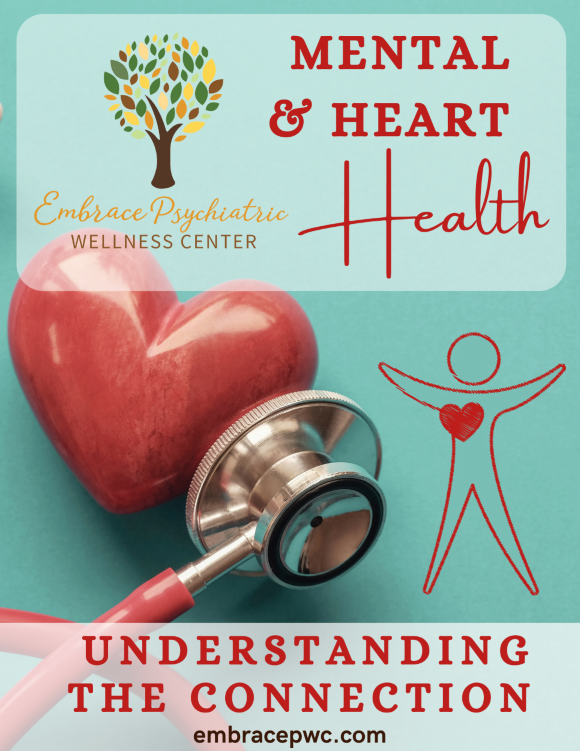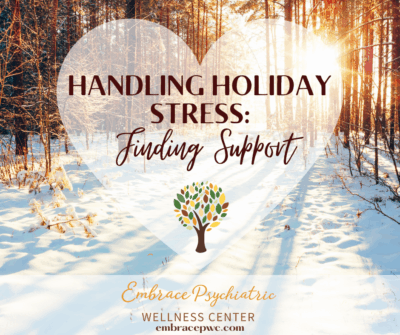
The holiday season is often described as “the most wonderful time of the year.” Yet for many, it can feel like the most difficult. Between family expectations, financial pressures, grief, and the shorter, darker days of winter, stress and sadness can easily overshadow the celebrations. In fact, surveys from the National Alliance on Mental Illness (NAMI) show that nearly two-thirds of people living with mental health conditions report their symptoms worsen during the holidays. Another study found that three in five Americans feel their mental health is negatively impacted by this season. At Embrace Psychiatric Wellness Center, we understand that holiday stress is real—and that you don’t have to face it alone. Whether you’re grieving, feeling overwhelmed, or struggling with depression, anxiety, or other conditions, our team is here to help you find balance, relief, and hope. (Read More)

